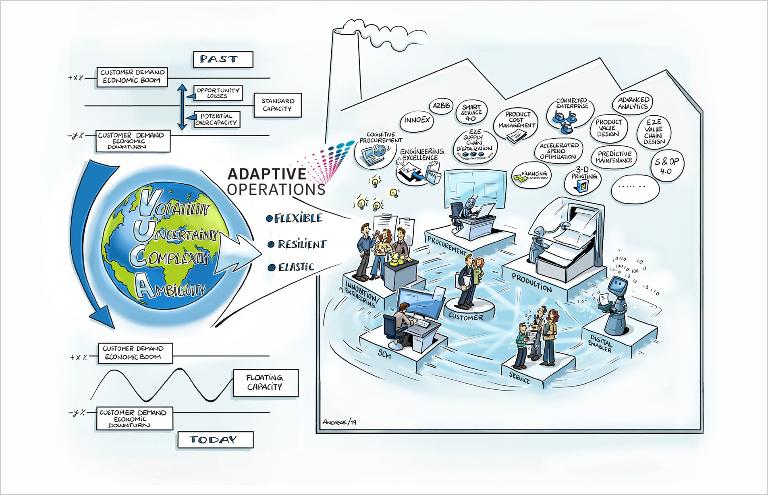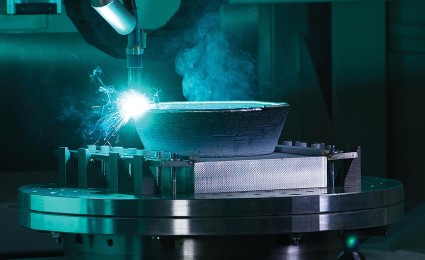

Adaptive Operations
After a decade of economic growth across most industrialized countries, global growth is slowing. Some of the contributing factors are a rise in trade tensions, weaker growth in China and threats from political populism. At the same time, in an economy built on speed, many strategic digitalization projects and operational excellence initiatives have not borne fruit – at least not yet.
The way forward is to ensure an operational system that can adapt its structure and cost basis quickly to deal with harsher economic realities. It also means seizing the opportunity to develop and improve the business on a continuous basis. As a whole, we call this process “ Adaptive Operations .”
Adaptive Operations are operations that are permanently adjusting at a fundamental level, whether in structure, with business models or via processes. It’s a mindset of constant adaptation to the rapidly changing trends and scenarios as they present themselves – and doing it without losing the company’s core values. In times of economic slowdown, we advise clients to focus on lean operations that are structured from the outset to be adaptive. Implemented correctly, Adaptive Operations can lead to significant savings through operational efficiency.
OPERA: Our vision for the operations of the future
Roland Berger has developed guiding principles for robust and future-proof operations and aggregated them into a model we call OPERA 2030. OPERA stands for: O-pen up operations, P-erfect your value chain, E-mbrace digital, R-eorchestrate value generation, and A-ccelerate the learning game.

Constant change can be part of a company’s DNA
The paradigm of the digital age is the network, and companies need to be organized this way, too. With a network organization in place, companies are one step closer to Adaptive Operations, where change is an everyday process, ideas flow dynamically throughout the network ecosystem, and decisions are made on the front lines.
It means using some tried and true tools, such as an accelerated version of zero-based budgeting , but Adaptive Operations also means a riskier way of doing business than before. That’s because companies with Adaptative Operations will make decisions with less certainty than they had in the past. But the advantages of speed, and the experience gained in constantly adapting, may counterbalance that risk.
As long as companies stick to the core values they’ve established around their own, unique culture, they will benefit from being more open and networked. The whole company will be more fluid and changeable as its structures, teams and processes become so.
With a solid cultural foundation in place, constant change can be part of a company’s DNA. In other words, permanence and constant transformation can and should co-exist.
Adaptive Operations applies to our operational clusters:
Would you like to receive regular updates on news, studies and events in Operations? To subscribe to our quarterly Adaptive Operations newsletter just send an email to Melanie Habrock-Michels .































